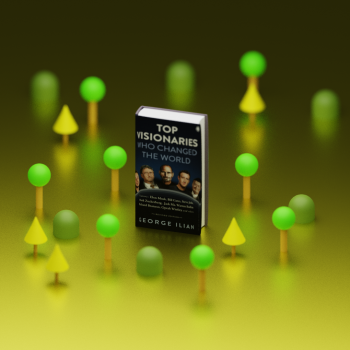Philosophy, often referred to as the "love of wisdom," has been a driving force in shaping human thought for centuries. The study of philosophy encompasses a vast array of topics, from metaphysics and ethics to political philosophy and existentialism. Whether you are a seasoned philosopher or a curious reader looking to delve into the world of profound ideas, this guide introduces you to some of the best philosophy books that have left an indelible mark on intellectual history.
Meditations" by Marcus Aurelius
Kicking off our list is "Meditations" by Marcus Aurelius, a Roman Emperor and Stoic philosopher. This collection of personal writings offers profound insights into Stoicism, focusing on self-discipline, virtue, and resilience. Written as a series of notes to himself, Aurelius reflects on the nature of life, the importance of virtue, and the inevitability of change. "Meditations" remains a timeless guide to navigating the complexities of human existence.
"Sophie's World" by Jostein Gaarder
For those new to philosophy, "Sophie's World" serves as an accessible and engaging introduction. Written in the form of a novel, Jostein Gaarder takes readers on a journey through the history of philosophy, exploring fundamental ideas from ancient Greece to the modern era. The book cleverly weaves a fictional narrative with philosophical concepts, making it an excellent starting point for anyone interested in the subject.

"Being and Time" by Martin Heidegger
Martin Heidegger's "Being and Time" is a seminal work that significantly influenced existentialist philosophy. Delving into the nature of human existence, Heidegger explores concepts such as authenticity, temporality, and the nature of being itself. While the text can be challenging, its impact on contemporary philosophy is undeniable, making it a must-read for those interested in existential thought.
"The Republic" by Plato
No list of the best philosophy books is complete without mentioning Plato's "The Republic." This ancient Greek dialogue, written in the form of conversations between Socrates and other characters, tackles essential questions about justice, the nature of the soul, and the ideal state. Plato's allegory of the cave and his exploration of the philosopher-king concept remain influential to this day.

"Critique of Pure Reason" by Immanuel Kant
Immanuel Kant's "Critique of Pure Reason" is a cornerstone of modern philosophy. Published in 1781, Kant's work revolutionized epistemology and metaphysics. In this dense but rewarding book, Kant explores the relationship between human experience and knowledge, introducing concepts like a priori knowledge and the transcendental unity of apperception. "Critique of Pure Reason" is essential for those interested in understanding the foundations of modern philosophical thought.
"Thus Spoke Zarathustra" by Friedrich Nietzsche
Friedrich Nietzsche's "Thus Spoke Zarathustra" is a philosophical novel that presents Nietzsche's ideas through the voice of the fictional character Zarathustra. This work explores concepts such as the eternal recurrence, the will to power, and the overman. Nietzsche's provocative and poetic style challenges conventional moral values, making "Thus Spoke Zarathustra" a thought-provoking and influential read in the realm of existentialist and postmodern philosophy.

"The Nicomachean Ethics" by Aristotle
Aristotle's "Nicomachean Ethics" is a foundational text in ethical philosophy. In this work, Aristotle explores the nature of virtue, ethics, and the pursuit of a good life. Unlike some philosophical works that can be abstract and difficult to apply, Aristotle's practical approach to ethics makes "Nicomachean Ethics" a timeless guide for individuals seeking moral guidance and self-improvement.
"The Prince" by Niccolò Machiavelli
Niccolò Machiavelli's "The Prince" is a classic treatise on political philosophy and leadership. Drawing on his observations of political leaders and historical events, Machiavelli offers pragmatic advice on statecraft and governance. While controversial for its emphasis on power and realpolitik, "The Prince" remains a thought-provoking exploration of the complexities of political strategy and leadership.
"A Treatise of Human Nature" by David Hume
David Hume's "A Treatise of Human Nature" is a groundbreaking work in empirical philosophy. Published in the 18th century, Hume challenges traditional notions of causation, explores the nature of human perception, and lays the groundwork for his influential ideas on empiricism. Hume's work continues to shape discussions in philosophy of mind, epistemology, and metaphysics.

"The Social Contract" by Jean-Jacques Rousseau
Jean-Jacques Rousseau's "The Social Contract" is a key text in political philosophy that has had a profound impact on the theory of government. Rousseau explores the concept of the social contract, arguing for the legitimacy of political authority based on the will of the people. His ideas on the general will and the role of the state in preserving individual freedom have influenced political thought and revolutions throughout history.
Philosophy is a vast and diverse field, and the books mentioned here represent just a glimpse into its rich tapestry of ideas. Whether you're interested in ethics, metaphysics, political philosophy, or existentialism, these works provide a solid foundation for exploring the depths of human thought. Remember, philosophy is a journey, and each of these books invites you to embark on a quest for understanding the profound questions that have shaped our intellectual history. Happy reading!
Comment



















